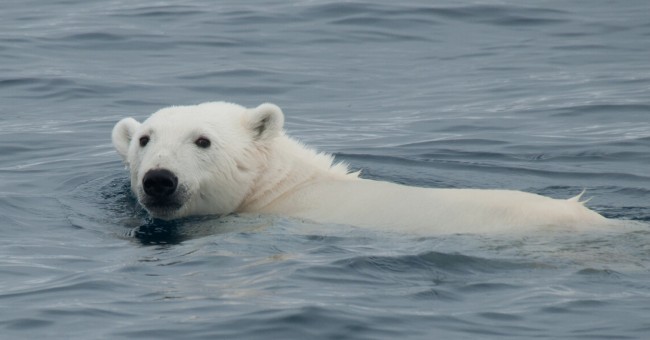
Polar bears drowning in arctic waters – that’s how it all began in 2004. Charles Monett, Department of the Interior (DOI) employee, noted scientist, climatologist and a colleague were conducting an aerial survey of arctic waters to determine whether the conditions observed supported claims of global warming. In his report the DOI scientist, Monett, stated that if the regression of arctic ice were to continue then the expectation that polar bear drownings might become more prevalent (as the polar bears tried and failed to swim longer distances between ice packs) was a reasonable and logical expectation.
On its face Monett’s statements appear benign, sensible and well within the realm of his expertise. His conclusions were conditional and conservative, adhering to underlying data. They were not the kind of outlandish claims that would raise the ire of his employer, the DOI. Or were they? When federal bureaucracies, scientific inquiry, politically charged issues like “global warming,” interests in the oil and gas exploration industry, and “polar bear” environmental activists are tossed into the same cauldron of claims, counter claims and cross claims, the matter of a few drowned polar bears can become – did become – a federal case.
In 2011 an inspector general investigated Monett’s polar bear research consequent to a contract overseen by Monett while working with the Bureau of Ocean Energy Management (BOEM). During that investigation a DOI employee stated that Monett had wrongfully leaked government records and had falsified data in a paper documenting the drowning of polar bears. In light of that information , the DOI temporarily suspended Monett.
With that suspension the issue was joined. Although the federal inquiry exonerated Monett and affirmed the reliability of his research and conclusions, the inspector general did chastise Monett for having released certain emails which proved crucial in a Federal Court of Appeals’ decision to kill an oil and gas exploration plan approved by none other than the BOEM. Monett was allowed to return to work at the DOI, however, on his return he was notified that during the time of his suspension, his work in Alaska, the very work that was the subject of his noted expertise, had been reassigned. This reassignment clearly falls under the “insult to injury” column of employee relations.
Monett brought his action against the DOI in 2011 in Federal Court. Jeff Ruch of PEER, Public Employees for Environmental Responsibility, announced today that Monett had agreed to settle his case with the government. The terms of the settlement agreement are as follows in summary: The government will pay Monett $100,000. The government will vacate the letter of reprimand and give Monett a certificate honoring his work on the polar bear research project. For his part Monett would not return to work for the DOI for five years, a term rendered nearly moot with Monett’s agreement to retire as of November 15, 2013.
The post game analysis is as heated as the disagreements that gave rise to the case at law. Monett says that in good conscience he can not work for an agency that encouraged and promoted dishonesty, that the past two years had been hell for him and his family, that his experience with the DOI will put a chilling effect on those DOI scientists who will feel pressured to determine and then go along with the party line, i.e., conclusions whose merit reside in their political efficacy and not in the scientific process.
Bureaucracies by their nature are greater than the sum of their parts. They promote their middle and eat their young – the innovative, the energetic, the outliers who challenge the slower pace, entrenched processes and the unexceptional conclusions of those employees who keep their heads down and go along to get along. Monett was a well respected scientist, and like Galileo 500 years ago he believed that conclusions reached on the basis of scientific inquiry were sufficiently benign, without prejudice or bias, by definition “neutral,” so as not to place him at risk. Galileo kept his head, literally. But he recanted his findings concerning the earth, the sun and which revolves around which, having failed to account for their theological implications.
Like most scientists whose efforts reside in the politically free zones of inert elements, numbers and equations, Monett didn’t account for the political implications of his findings. And these implications placed him at the center of a controversy that drew to its core adversarial parties with motives and strategies, which all but dwarfed the claims of the scientist who’d observed four drowned polar bears.
Polar bears are great animals, gorgeous carnivores to be admired from afar or behind protective walls of glass. They are majestic and beautiful, alive and doing as well as they can given the regression of ice packs. They have the rights of any living creature to live where they live, in their wild element, damaged as it may be, and to that end Charles Monett spoke truth to power.
By Michael Hogan
The Canadian Press



